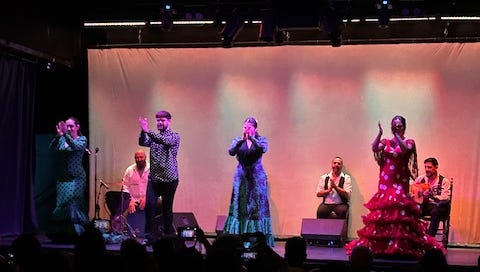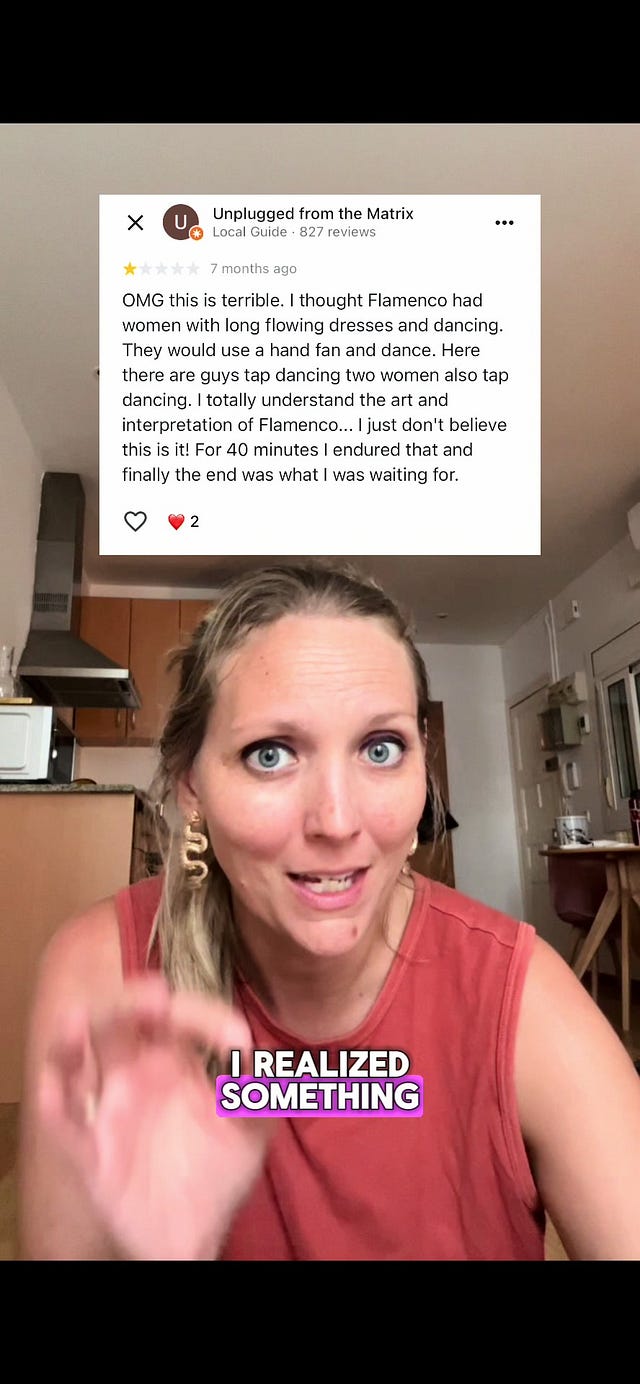This review almost made me skip the show:
I almost believed it—until I realized something: this wasn’t a review. It was a mindset.
A limited lens. A refusal to see what didn’t fit the reviewer’s frame.
He thought he was watching tap dancing.
What he missed was centuries of art. Rebellion. Showmanship. Soul.
So I went. And what I saw was fire.
The man didn’t just perform. He declared. His body stomped out history on wood, his arms carved space out of silence. It was not for the faint of ego. It wasn’t supposed to be.
That’s when I remembered something a teacher once said to me in my first year as a coach:
“You have an archetype of what a good teacher is. And you think it looks like you.”
Oof.
She wasn’t wrong. I did have an image in my head. Animated. High-energy. Commanding presence. Bell-to-bell engagement. Basically… tap dancing.
And Ms. K was not that.
She was quiet. Measured. Biting with her tone, exacting with her words. She held space, not stage time.
And it mostly worked.
But I couldn’t see it. Not at first. Because I was looking for the familiar.
I was trying to fit her into the box of my experience, not hers.
That moment cracked something open in me—something Adam Grant would later name: Mental fossils—beliefs that once served a purpose but no longer hold up in today’s world.
I had fossilized my idea of what excellence looked like and it limited my ability to coach in the present.
Art, Power, and the Work Ahead
So here’s what I’m learning: Flamenco isn’t tap. Coaching isn’t cloning.
If we’re not careful, our fossilized mental models—about what good teaching looks like, what leadership sounds like, what progress feels like—will make us miss the brilliance standing right in front of us.
Don’t let someone else’s small lens—or your own—steal something big from you.
Sometimes the most powerful thing we can do as coaches and leaders is to throw out the old archetype, and learn to recognize greatness in a new form.
Even if it doesn’t look like tap dancing.
So What Do We Do?
If you're a coach, evaluator, or leader—try this:
Interrogate your mental fossils. What “shoulds” or “look-fors” are you holding that might be outdated?
Ask yourself, “What am I not seeing because it doesn’t look like me?” Then get curious.
Resist the urge to clone. Greatness doesn’t need to match your energy. It needs to match the needs of the students in front of them.
Give feedback that honors the teacher’s art—not just your preference.
The job isn’t to manufacture tap dancers.
It’s to recognize flamenco when it storms into the room.







